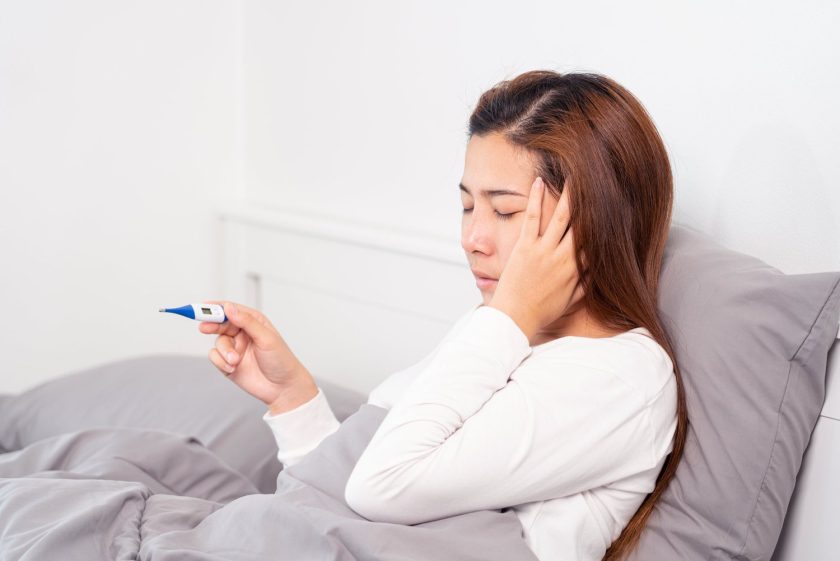Migraines and fever are two distinct health conditions that can significantly impact an individual’s well-being. While migraines are typically characterized by severe headaches, fever is commonly associated with infections or other underlying medical issues. However, there may be instances where migraines and fever coincide or appear to be interconnected. In this article, we will explore the relationship between migraines and fever, examine potential factors contributing to fever during migraines, and discuss management strategies for these conditions. So, can migraines cause fever? Let’s find out together!
Introduction
Migraines are a neurological disorder characterized by recurring headaches that are often accompanied by additional symptoms such as nausea, sensitivity to light and sound, and visual disturbances. On the other hand, fever is generally defined as an increase in body temperature above the normal range, usually in response to an infection or inflammation. While migraines and fever are distinct conditions, some individuals may experience both simultaneously or attribute fever-like symptoms to their migraines.
Understanding Migraines
Migraines affect approximately 12% of the global population and are more prevalent in women. These headaches are typically moderate to severe in intensity and can last for hours or even days. Migraines may be triggered by various factors, including hormonal changes, stress, certain foods or beverages, lack of sleep, environmental factors, or sensory stimuli. It is important to note that not everyone who experiences migraines will also develop fever-like symptoms.
Understanding Fever
Fever is the body’s natural response to an infection or other medical conditions. It is often characterized by an elevation in body temperature, generally above 100.4°F (38°C). Fever can be caused by various factors, such as bacterial or viral infections, inflammation, certain medications, or underlying medical conditions. It is typically accompanied by symptoms like chills, sweating, body aches, and fatigue.
Possible Relationship between Migraines and Fever
While migraines and fever are distinct conditions, some individuals may experience fever-like symptoms during migraines. Research on the topic is limited, but it suggests that there may be a connection between migraines and fever in certain cases. Migraine attacks can lead to an increase in body temperature, which may resemble fever. However, this increase is usually mild and not indicative of an actual infection.
Other Factors Influencing Fever during Migraines
Several factors may contribute to the development of fever-like symptoms during migraines. Inflammation is thought to play a role, as migraines can trigger an immune response that leads to increased levels of inflammatory markers in the body. Additionally, the immune system’s involvement in migraines may contribute to fever-like symptoms. It is important to note that medications taken during migraines, such as triptans, may also impact body temperature regulation.
Managing Migraines and Fever
To manage migraines and fever effectively, a comprehensive approach is necessary. Preventive measures for migraines include identifying and avoiding triggers, maintaining a regular sleep schedule, managing stress, and adopting a healthy lifestyle. Over-the-counter pain relievers or prescribed medications may help alleviate migraine symptoms and fever-like sensations. In some cases, healthcare professionals may recommend preventive medications to reduce the frequency and intensity of migraines.
Seeking Medical Advice
If you experience migraines with fever-like symptoms or persistent fever during a migraine attack, it is advisable to consult a healthcare professional. They can assess your symptoms, and medical history, and conduct any necessary tests to determine the underlying cause. Proper diagnosis is crucial for effective management and ruling out any other potential health concerns.
Conclusion
While migraines and fever are distinct conditions, there can be instances where they appear to be interconnected. Migraine attacks may lead to mild increases in body temperature that resemble fever, but they are generally not indicative of an infection. It is important to seek medical guidance if you experience migraines with fever-like symptoms to ensure accurate diagnosis and appropriate management. By adopting a holistic approach, including lifestyle modifications and appropriate treatment, individuals can effectively manage migraines and minimize the impact of associated fever-like symptoms.
FAQs
1. Can migraines cause a high-grade fever?
No, migraines typically do not cause high-grade fever. The increase in body temperature during migraines is usually mild and does not signify an infection.
2. Are migraines with fever more severe than migraines without fever?
Migraines with fever-like symptoms are not necessarily more severe than migraines without fever. The intensity and severity of migraines can vary among individuals, regardless of the presence of fever-like sensations.
3. Is fever always present during a migraine attack?
No, fever is not always present during a migraine attack. While some individuals may experience fever-like symptoms, others may not have any associated increase in body temperature.
4. Can over-the-counter medications help with migraine-related fever?
Over-the-counter pain relievers may help alleviate migraine symptoms, including fever-like sensations. However, it is essential to consult a healthcare professional for appropriate guidance and to rule out other underlying causes.
5. Are there any natural remedies for managing migraines and fever?
Some individuals find relief from migraines and associated fever-like symptoms through relaxation techniques, dietary modifications, adequate hydration, and maintaining a consistent sleep schedule. However, it is advisable to consult with a healthcare professional for personalized advice and to discuss the suitability of natural remedies in individual cases.





